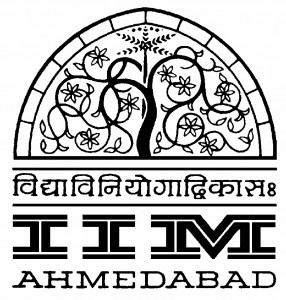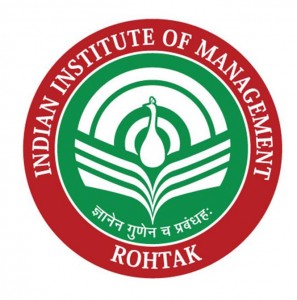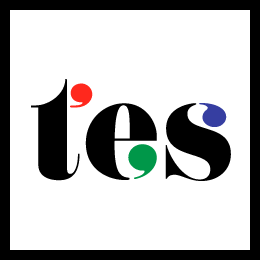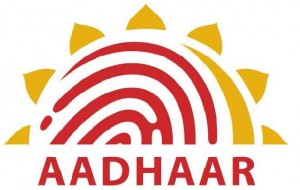 IIM-A has tied up with LinkedIn, a professional networking site to keep placement channels open with recruiters even after students graduate. Recruiters can go through alumni profiles for hiring at the middle and senior levels. LinkedIn has more than 17 million users in India. The site provides a platform to foster professional relationships and search for new jobs. Since 2009, LinkedIn has more than tripled its India users.
IIM-A has tied up with LinkedIn, a professional networking site to keep placement channels open with recruiters even after students graduate. Recruiters can go through alumni profiles for hiring at the middle and senior levels. LinkedIn has more than 17 million users in India. The site provides a platform to foster professional relationships and search for new jobs. Since 2009, LinkedIn has more than tripled its India users.
IIM Ahmadabad Gets LinkedIn
IIM Rohtak Celebrates Fourth Foundation Day
 IIM -R celebrated its fourth foundation day with a discussion on the theme ‘Revitalizing India‘s Growth Sentiments’. The industry stalwarts and academicians, who gathered at the IIM-R explored means to thrust the Indian economy again onto a rapid growth path amidst persistent global economic and business slowdown.
IIM -R celebrated its fourth foundation day with a discussion on the theme ‘Revitalizing India‘s Growth Sentiments’. The industry stalwarts and academicians, who gathered at the IIM-R explored means to thrust the Indian economy again onto a rapid growth path amidst persistent global economic and business slowdown.
The event was formally inaugurated by Mr Ravi Swaminathan, MD, AMD India and Prof P Rameshan, Director, IIM-R, by lighting the ceremonial lamp. Prof Rameshan outlined in the inaugural address the journey of IIM-R and reiterated its commitment to create the enabling environment of faculty, systems and processes while furthering its vision and mission.
Mr. Swaminathan, in his keynote address, stated that “In the context of revitalizing India’s growth sentiments, the need of the hour is to challenge conventional wisdom to leverage opportunities and threats presented by exponentially increasing population, mass urbanization, new modes of wealth creation and rapid technological evolution”.
Other dignitaries such as Mr. S. K. Roongta, CMD, National Seeds Corporation of India, Prof. Anand P. Gupta, Director, Economic Management Institute, New Delhi and Mr. Roopal Chopra, COO, Advel Group also shared their insights with the audience.
Ireland Wants to Double Number of Indian Students in Country
 Ireland is aiming to double the number of Indian students studying in the country in three years, its Minister for Higher Education and Skills,Ciaran Cannon T D, said in Banglore. Around 850 Indian students currently studying in Ireland for post-graduate degrees in engineering, pharma, business, computer sciences, accounting and hospitality management. According to Irish officials, it is estimated that every 100 additional international students who come to Ireland support the creation of 15 local jobs, through spending on tuition, accommodation and other living expenses.
Ireland is aiming to double the number of Indian students studying in the country in three years, its Minister for Higher Education and Skills,Ciaran Cannon T D, said in Banglore. Around 850 Indian students currently studying in Ireland for post-graduate degrees in engineering, pharma, business, computer sciences, accounting and hospitality management. According to Irish officials, it is estimated that every 100 additional international students who come to Ireland support the creation of 15 local jobs, through spending on tuition, accommodation and other living expenses.
Story-telling festival For Delhi School Kids
 A storytelling festival was organized at Pathways School, Noida in November. The “Kahaani Festival” offered children a multitude of narratives from India and world, presenting them a chance to share their stories. They also explored tools of storytelling, narratives, writing, animation and traditional forms of illustration.
A storytelling festival was organized at Pathways School, Noida in November. The “Kahaani Festival” offered children a multitude of narratives from India and world, presenting them a chance to share their stories. They also explored tools of storytelling, narratives, writing, animation and traditional forms of illustration.
Present at the event were Anita Mani, Prayag Shukla, Sampurna Chatterji, Anupa Lal, Manisha Chaudhry, Smita Vats, Varsha Das, Atanu Roy, Subhadra Sengupta, Bulbul Sharma and Sachin George Sebastian.
The performance segment will host Ishara Puppet Theatre led by contemporary puppet pioneer Dadi Pudumjee, “Kat Katha” by puppeteer Anurupa Roy, “Akaar” by Puran Bhatt, “Saltbrush”, an Australian production, and an improvised production of “A Midsummer Night’s Dream”.
TES Education Launches India Website
 TSL Education, publishers of the world renowned TES Magazine and host to the world’s largest network of teachers, has launched the TES India, built exclusively for Indian teachers and schools and completely free to join and use.
TSL Education, publishers of the world renowned TES Magazine and host to the world’s largest network of teachers, has launched the TES India, built exclusively for Indian teachers and schools and completely free to join and use.
It contains more than 5 lakh resources and lesson plans which have been mapped to the Indian K-12 education system by grade and by subject. TES India also offers learning materials for Whole School and Special Needs such as cognitive impairment and dyslexia.
TES India also includes an educational jobs portal featuring opportunities in metro and important cities in India.
North Indian Kids More Obese in Country
 Schoolchildren in north Indian metros are less healthier than their counterparts in the country, says ‘EduSports School Health and Fitness Survey’.
Schoolchildren in north Indian metros are less healthier than their counterparts in the country, says ‘EduSports School Health and Fitness Survey’.
The survey covered around 49000 children in 7-19 years age-group across 100 schools in 54 cities. Children from Northern states of Punjab, Delhi, Rajasthan, UP and Haryana have a higher BMI of 24% as compared to national average of 19.9%.
The survey added that nearly 40 per cent of school-going children in India do not have the right BMI and almost 20 per cent of them show signs of obesity, possessing poor body strength, poor flexibility and have undesirable BMI scores.
Geographically, children in the non-metros performed better across various fitness parameters compared to their counterparts in the metros.
One out of four children in the metros is overweight compared to one out of six children in the non-metros. Additionally, children in non-metros also demonstrated better anaerobic capabilities and flexibility.
Further, nearly one in two children covered under the study had poor flexibility levels and body strength making them unsuitable for most sports.
Girls fared better than boys, as a total of 63.9 per cent of them had a better overall BMI and flexibility as compared to 58.2 per cent of the boys.
However, lack of infrastructure to play is not the primary reason behind the falling fitness levels as children from schools that did not have sufficient infrastructure did equally well compared to schools that had sufficient infrastructure for children to play.
Schools Teach Rich Children to Share
 Top private CBSE schools in Kerala are encouraging their students to reach out to the less privileged through various social awareness efforts.
Top private CBSE schools in Kerala are encouraging their students to reach out to the less privileged through various social awareness efforts.
In line with CBSE’s efforts towards inculcating social commitment among students through value-based questions, the schools are doing voluntary work at hospitals, old age homes and orphanages and collecting money to provide better classrooms and labs in schools where poorer students study.
Some schools collect rice and grocery from children and distribute to the poor in the area every month. Many schools have formed clubs to develop compassion in students.
Kerala CBSE Schools Get Breather From UID
 The Kerala High Court has issued a stay on Kerala government’s demand CBSE schools should compulsorily ensure UID registration for students for obtaining NOC.
The Kerala High Court has issued a stay on Kerala government’s demand CBSE schools should compulsorily ensure UID registration for students for obtaining NOC.
Observing that the government can’t insist on a condition that’s not within the powers of a school management, the court ruled that they cannot be compelled to produce the same.
The ruling was given by a division bench while considering petitions by 15 CBSE schools challenging the rules put forwarded in Kerala Education Rules for obtaining fresh NOCs to run schools.































